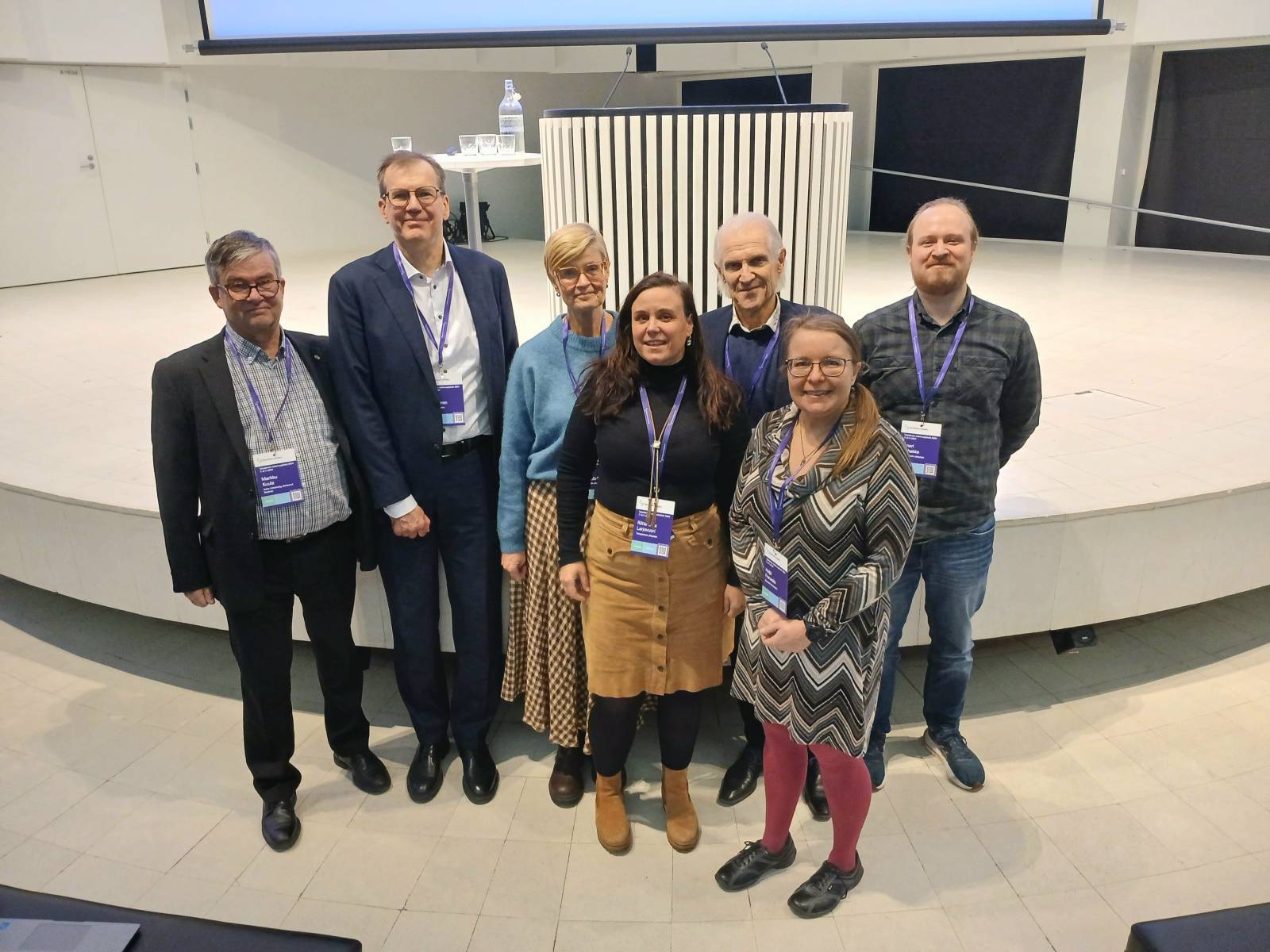Ilmari Puhakka presented results from the HYBRIDI research project from the viewpoint of emotional valence. Focusing on work interaction situations conducted in face-to-face, hybrid, and online settings, the presentation examined how physiological arousal, perceived competence development, autonomy and relatedness satisfaction, and goal fulfilment of the interaction situations predict self-reported emotional valence (positive/negative) and emotional arousal (activating/deactivating).
Based on the results, particularly goal fulfilment and relatedness satisfaction were strong positive predictors for more positive emotional valence and activating arousal. In addition, interaction situations conducted in hybrid and online settings had more negative and deactivating emotions compared to face-to-face interaction situations. Surprisingly physiological arousal was not associated with study variables.
The results encourage face-to-face interaction in work situations, but also to evaluate the benefits and hindrances of different interaction settings at work. For example, online and hybrid interaction can be important in the standpoint of flexibility, even though not optimal in other aspects. On theoretical side, the missing physiological results raise questions for the relationship of perceived and physiological arousal in particular.
The symposium included presentations from researchers of different career phases from doctoral researchers to emeritus professors representing Aalto University and various faculties of Tampere University. The other presentations (see abstract book) in the symposium addressed the choosing of working space in multilocational work, employee experiences in governments multispace work environment, the productivity and well-being in hybrid work, and building communality that supports well-being in multilocational work.
Topical keynotes addressed work as a promoter and a risk factor (Mika Kivimäki), how data and AI influence work (Minna Ruckenstein), and how nature and work that respects nature (Satu Teerikangas) are discussed in the current working life. The conference provided a contemporary view of the research on work both nationally and internationally and allowed networking.
Conference programme (in Finnish): https://events.tuni.fi/ttp2024/ohjelma/
Abstract book:

